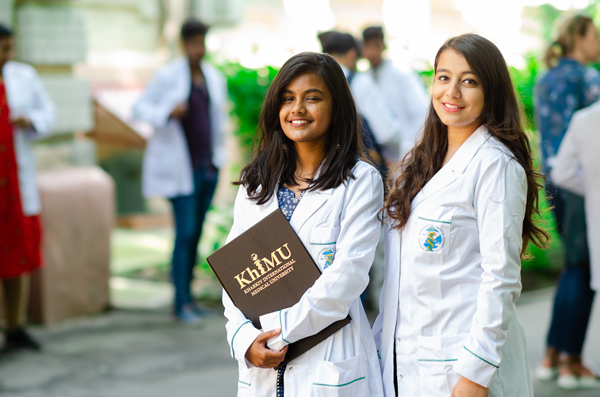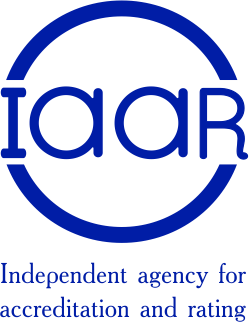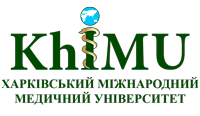Faculty of Medicine
 The specialty “Medicine ” is 5 years 10 months. Form of study - full-time. The
main activity of the Medical Faculty of the KhIMU is to train doctors in full
compliance with the requirements of the educational standard of higher
professional education in the specialty "Medicine".
The specialty “Medicine ” is 5 years 10 months. Form of study - full-time. The
main activity of the Medical Faculty of the KhIMU is to train doctors in full
compliance with the requirements of the educational standard of higher
professional education in the specialty "Medicine".
In the course of study on 1-3 courses basic, medical-biological and pre-clinical disciplines are studied: chemistry, physics, biology, anatomy, histology, physiology, microbiology, informatics, pathological anatomy, pathophysiology, pharmacology, hygiene. From the 2 nd year students go to practice in the clinic and learn the basics of patient care for therapeutic and surgical profile, and practice as a nurse's assistant. In the 3rd year the introductory clinical disciplines are studied - propedeutics of internal diseases, general surgery, radiology, operative surgery, hygiene.
During the clinical sessions, the professional activity of the doctor (admission of the patient with complaints, medical history, objective examination and writing of the medical history, modeling of the plan of examination and treatment, analysis of the data of laboratory and instrumental research, correction of therapy, writing diaries of daily observation of patients and patients) are simulated.
The first two years of medical school includes an overview of fundamental or basic science courses. The first year is devoted to general understanding of biological, chemical and physical sciences applicable to the practice of medicine. Starting with the second year, the focus progressively narrows down, channeling the studies towards those biomedical sciences that are most relevant for a practicing physician.
The theoretical training of the course of studies is conducted by obligatory, optional and facultative disciplines, in form of lectures, seminars, practical exercise and self-training. The practical training of the course of studies is conducted by practical studies during the semester training, training practices and pre-graduation internship. The theoretical and practical training in the program is in compliance with the ECTS system.
The clinical years are what all medical students anticipate, a time when lectures and laboratories translate into patient care. The clinical studies examine the application of the biomedical sciences mastered during the first two years of medical school. The teaching from the third year onwards takes place exclusively in clinical settings of the modern facilities of the University teaching hospitals and involves work with patients admitted for treatment.
The last year of medical studies has exclusively practical purposes. During the last year, students work under the direct guidance of the assistants and instructors with high academic positions in the clinics.
Crucial assessment of knowledge acquired by the students after accomplishing the studies is given by the State Examination KROK (at 3rd and 6th) as comprehensive theoretical state examination.
After the successful completion of the 6-years course of academic studies in the program of medicine, students are awarded a Diploma of completed higher medical education. Graduates are conferred Master's degree along with the professional qualification "physician"- Doctor of Medicine. A European supplement to the medical Diploma issued in English language is also provided to the medical graduates upon graduation. The Master-physician is an accomplished specialist who enjoys the necessary knowledge, skills and qualities for the realization of the contents, goals and assignments of the general medical practice. The possession of that degree enables the holder to practice medicine in EU countries as well as in many other countries worldwide.











